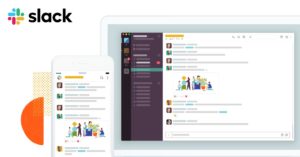RocksDB with Dhruba Borthakur and Igor Canadi
Podcast: Play in new window | Download
Subscribe: RSS


RocksDB is a storage engine based on the log-structured merge tree data structure. RocksDB was developed at Facebook to provide a tool for embedded databases. The code for RocksDB is a fork of LevelDB, an embedded database built by Google for the Chrome browser.
Every database has a storage engine. The storage engine is the low-level data structure that manages the data in the database. RocksDB is widely used in database applications where a log-structured merge tree is preferable to a b-tree. These tend to be write-heavy workloads.
In past shows, we have explored applications of RocksDB in our coverage of databases like TiDB, data-intensive applications like Smyte, and data platforms like Rockset. In today’s episode, Dhruba Borthakur and Igor Canadi join for a deep dive into how RocksDB works. Dhruba was the original creator of RocksDB, and Igor is a former Facebook engineer who worked on RocksDB in its early days. Both Dhruba and Igor work at Rockset.
We talk about the log-structured merge tree, discuss why an LSM has higher write throughput than storage engines based on a b-tree, and evaluate some of the use cases for RocksDB.
Transcript
Transcript provided by We Edit Podcasts. Software Engineering Daily listeners can go to weeditpodcasts.com/sed to get 20% off the first two months of audio editing and transcription services. Thanks to We Edit Podcasts for partnering with SE Daily. Please click here to view this show’s transcript.
Sponsors
Triplebyte is a company that connects engineers with top tech companies. We’re running an experiment and our hypothesis is that Software Engineering Daily listeners will do well above average on the quiz. Go to triplebyte.com/sedaily.
Whether you are a software engineer, a project manager, or the CEO, Clubhouse lets you collaborate with the rest of the product team. To try out Clubhouse free for 2 months, go to clubhouse.io/sedaily.
OpenShift is a Kubernetes platform from Red Hat. OpenShift takes the Kubernetes container orchestration system and adds features that let you build software more quickly. OpenShift includes service discovery, CI/CD, built-in monitoring and health management, and scalability. With OpenShift, you avoid getting locked into any particular cloud provider. Check out OpenShift from RedHat, by going to softwareengineeringdaily.com/redhat.
Digital Ocean is the easiest cloud platform to run and scale your application. Try it out today and get a free $100 credit–go to do.co/sedaily. Digital Ocean is a complete cloud platform to help developers and teams save time when running and scaling their applications.


















